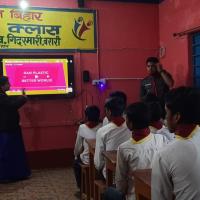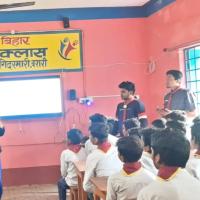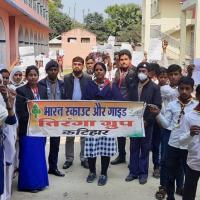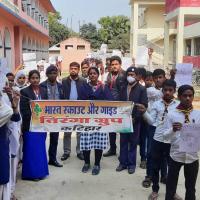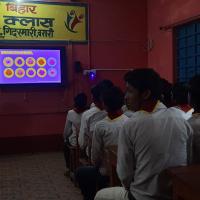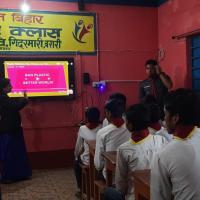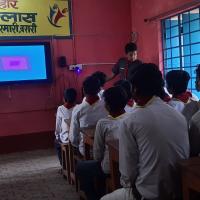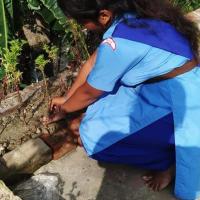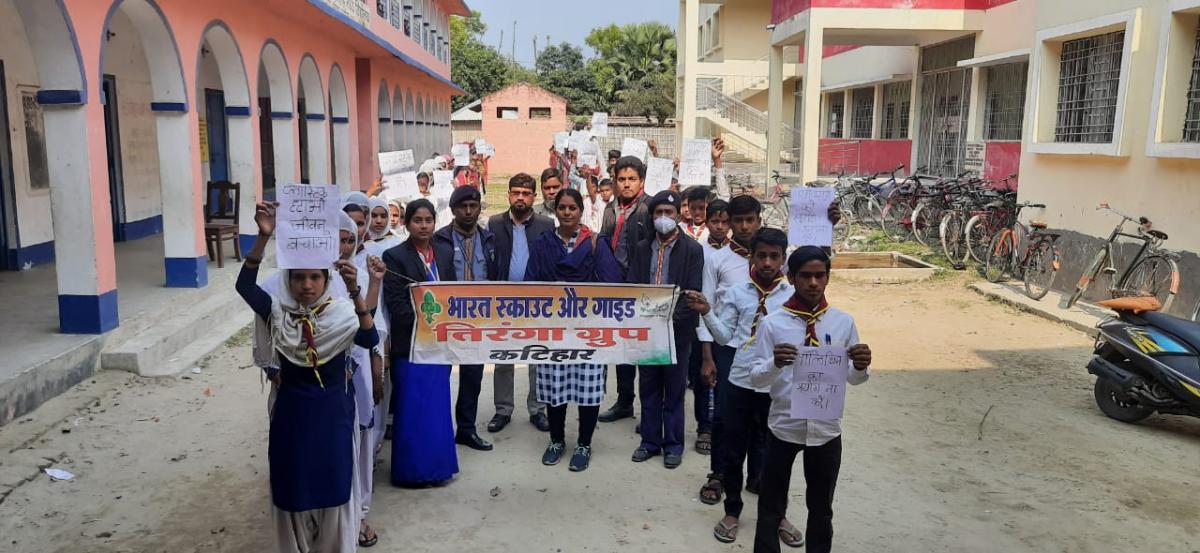
"Plastic tied Turner challenge "
👉I m sharing the story of journey towards ""Plastic Tied Turner challenge "". Myself Priyanka Kumari. I’m 23 years old and am a Young Leader (Guide Captain) with The Bharat Scouts and Guides, India and a State Media Correspondent of Bihar State. My involvement in environmental action started a few months ago when plastic pollution had reached an all-time high here in India. My first major thought was called Green Leaf delivered in collaboration with a group of doctors, politicians, and advocates. We advocated against plastic pollution producing reusable cotton bags that we distributed in our communities. They were very popular. However after about a month , the pandemic broke out and most our activities initially came to a standstill. Fortunately, an opportunity to participate in a challenge series called The Tide Turners Plastic Challenge was presented to me through WAGGGS and The Bharat Scouts and Guides India,Member Organization. This series had a range of interesting and engaging activities around plastic pollution and contained all the main guidance a young climate and environment advocate would need to make an impact. I started the plastic tied Turner challenge with a discussion on ourselves, helping us to link our priorities, strengths, and weaknesses and therefore better understand how each one of us could make an impact. Our activities were usually challenging but in an innovative manner allowing us to think outside of the box. How I inspired The cow was eating plastic thrown in road.This picture totally rattled me.We should avoid plastics because: Plastics are non-biodegradable. Once introduced into the environment, they take several years to decompose. Plastics cause environmental pollution. Nearly half of all plastic products are discarded after a single use and take up to 1000 years to disintegrate. Larger items, such as plastic bags and straws, can choke and starve marine life, while smaller fragments ( microplastics) can cause liver, reproductive, and gastrointestinal damage in animals . Plastic waste doesn’t decompose, meaning it can last in landfill and soil, rivers and oceans for centuries- continuously harming the environment as well as wildlife. It’s a team effort to tackle plastic pollution and save our planet, so the power is in all of our hands!
